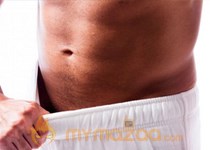In a four-month trial, testosterone therapy did not improve ejaculation problems in men with low testosterone levels.
“We wanted to explore in this study whether testosterone replacement is beneficial in the treatment of ejaculatory dysfunctions in men with low serum testosterone levels,” said senior author Dr. Shehzad Basaria of Brigham and Women’s Hospital in Boston.
Sexual dysfunction in men generally falls into three categories, Basaria told Reuters Health: problems with libido, problems with erections and problems with ejaculation.
Ten to 20 percent of men coming to doctors with some form of sexual dysfunction report problems with ejaculation, he said.
Basaria and colleagues studied 76 men with symptoms of ejaculatory dysfunction, like delayed ejaculation, inability to ejaculate, reduced ejaculate volume or reduced force of ejaculation.
All the men had low testosterone levels, or “low T.” None of them had diseases of the pelvis or a history of prostate cancer, and none were using drugs that could potentially impact their ejaculatory function. In addition, none of the men had severe erectile dysfunction, a separate condition that involves difficulty achieving or maintaining an erection. Difficulty with ejaculation can occur with or without erectile dysfunction.
For the trial, the men were randomly assigned to apply 60 milligrams of a 2 percent testosterone solution once per day, or a placebo.
For four months, the men applied the medication, had periodic blood tests to measure testosterone levels, provided periodic semen samples and agreed to attempt sex at least four times with a partner every month. They also kept a log of all sexual activity including masturbation.
By the end of the study, the men in the testosterone therapy group did have increased levels of the hormone in their blood, which were in the desired range. But ejaculate volume did not increase in either the testosterone or the placebo groups, the study team reports in the Journal of Clinical Endocrinology and Metabolism.
Both the testosterone and placebo groups did show slight improvement in their overall ejaculatory dysfunction symptom scores. But the small the difference between the groups was not statistically significant, meaning it could be due to chance.
Before this first randomized controlled trial, the evidence linking low testosterone to ejaculatory dysfunction was mainly based on measurements taken at a single point in time. Therefore, it was unclear if low testosterone was the actual cause for this condition, Basaria said.
“This study says that androgen deficiency is not the sole contributor to ejaculatory dysfunction in most of these cases,” said Dr. Ibrahim A. Abdel-Hamid of Mansoura University in Egypt, who was not involved in the study. “It is just an association.”
It's possible, Basaria said, that four months of treatment might not have been long enough.
Hopefully, the results of this trial will provide the impetus for further studies to explore other explanations for ejaculatory dysfunction, he said.
“In some patients, ejaculatory dysfunctions might be related to psychological elements,” Basaria said. “This avenue should also be explored in future studies.”
Testosterone solution is available in many countries but should only be used when indicated under a doctor’s instruction, Abdel-Hamid told Reuters Health by email.
Testosterone replacement therapy can be appropriate for men with low levels of the hormone along with symptoms specific to testosterone deficiency, which includes men with diseases of the pituitary gland or the testes and those on high-dose opioid medications, Basaria said. These conditions can cause androgen deficiency, decreased libido and decreased quality of life.











